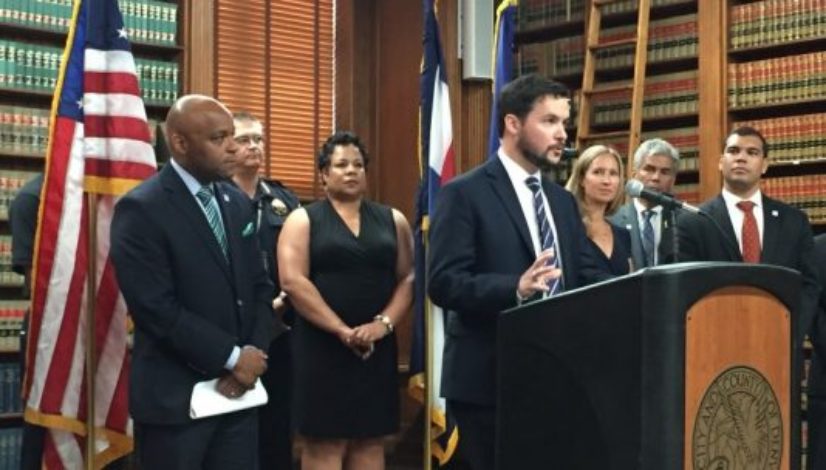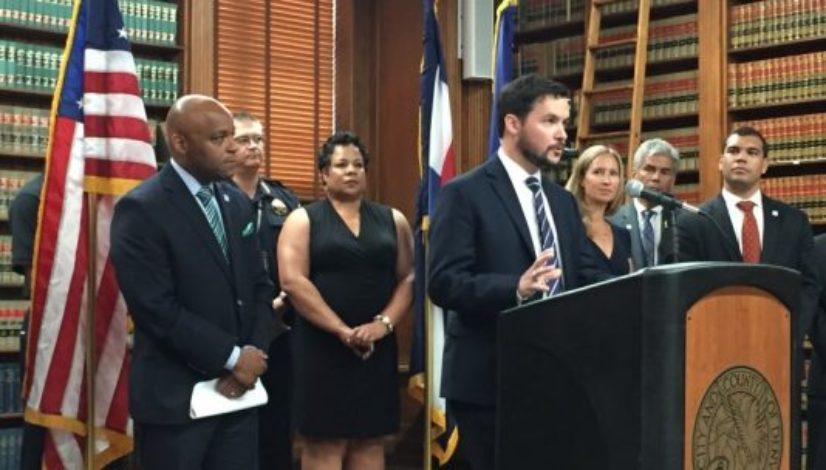Denver $2B budget plan uses marijuana money for transportation, community projects

Published: Sep 12, 2017, 4:37 pm • Updated: Sep 12, 2017, 4:37 pm
By Jon Murray, The Denver Post
Excess marijuana tax proceeds would provide $10 million for transportation projects, park and recreation center fixes, and a new “community budgeting” program next year under a $2 billion budget proposal unveiled Tuesday by Denver Mayor Michael Hancock.
As Denver draws on money flowing in from legalized recreational marijuana, the city in 2018 also would more directly confront the opioid crisis that has affected communities across the country. Hancock’s proposal includes more than $1 million for new and expanded support services that address addiction to heroin, pain relievers and synthetic drugs.
Hancock’s 2018 budget proposal, which now goes to the City Council for consideration and a vote by early November, is notable for several increases in spending that the mayor and council members have laid out previously to tackle the side effects of Denver’s rapid population growth.
It calls for a $31.5 million increase in spending on transportation and mobility, or more than 40 percent over typical funding levels, to begin tackling what Hancock has proposed as a $2 billion “Mobility Action Plan.” That would bring 15 miles of new bikeways, reconstruction of eight dangerous intersections and more projects to fix broken pavement and bridges, using some of the marijuana money.
Related stories
- Denver businesses can now apply for social marijuana use licenses
- Marijuana tech firm MassRoots to buy CannaRegs for $12 million
- Social use marijuana clubs will soon be legal in Denver, but how many will open?
- Cannabist Show: He has a 420-friendly event space ready to go while Denver figures out social use
- Cannabist Show: He takes on the lazy stoner stereotype with the 420 Games
And for the first time, the city plans to roll out a $4.5 million sidewalk repair and enforcement program. Since Denver places responsibility on property owners for their frontage, the budding plan includes an income-based assistance fund for homeowners who can’t afford to install or fix their walks, Hancock said.
His budget proposal also wraps in $21.6 million in plans for affordable housing subsidies and other programs, with $15 million to paid for by new local funding streams and the rest anticipated from federal funding.
However, a development impact “linkage” fee approved last year by the council for new projects is producing much less income than expected so far — projected at $800,000 this year compared to an earlier estimate of $3.5 million. That requires transfers from the general fund, officials say.
The city also would create a new “affordability assistance fund,” setting aside $500,000 for one-time help for residents struggling to afford housing costs, utilities and food expenses.
“This is a spending plan that will allow us to manage population growth and continue to deliver the highest-quality services to the people of Denver,” Hancock said during a morning news conference. “The 2018 budget proposes smart investments that will allow us to directly meet our most pressing challenges. … This spending plan will improve transportation, connect more residents to economic opportunities, help make Denver more affordable for families, assist those in need and strengthen our neighborhoods.”
The excess proceeds from marijuana taxes are expected to provide $5 million for deferred transportation maintenance, $4 million for parks and recreation repairs, and $1 million for the community budgeting fund.
Hancock said that last program, for which some council members have lobbied, would “give residents a direct ability to engage in decision-making and priority-setting for neighborhood improvement projects.” His administration is still working out the input process.
Separate from the budget, city voters will consider seven ballot measures in the Nov. 7 election that make up the city’s proposed $937 million bond package. If those win approval, they would add hundreds of transportation, parks, building and other projects to the city’s agenda.
In Hancock’s budget proposal, notable increases include the hiring of 100 police officers, mostly to offset retirements but also to increase the ranks by 22 officers, boosting the authorized force to 1,525 at a cost of $1.8 million.
And the Sheriff Department would hire 32 additional deputies, including to staff the new Building 24 women’s facility at the county jail on Smith Road.
New hiring across the board adds up to a big increase in city employment — with 12,457 current permanent and temporary positions projected to grow next year by 461, or 3.7 percent.
Those new positions are intended to help ramp up the expanded slate of transportation projects and grow other programs, as well as fill service gaps in areas including building permit reviews and inspections. The 911 call center, which is budgeted for 10 new employees, has struggled to fill vacancies and keep up with call volume.
The largest portion of the $2 billion operating budget is the $1.4 billion in spending proposed for the general fund, which covers most city operations. The general fund spending increase is estimated at 5.4 percent over this year.
Though tax proceeds and other revenues for the general fund are expected to increase by only 3.9 percent, Chief Financial Officer Brendan Hanlon says his office balanced the budget proposal primarily by using excess reserves for one-time expenses and capital projects. That is a standard city practice.
Still, Hanlon’s staff projects reserves will stand at 15.2 percent of general-fund spending next year, just above the city’s official target.
This story will be updated.
This story was first published on DenverPost.com
Topics: Colorado, colorado marijuana taxes, Denver, denver laws, taxes




